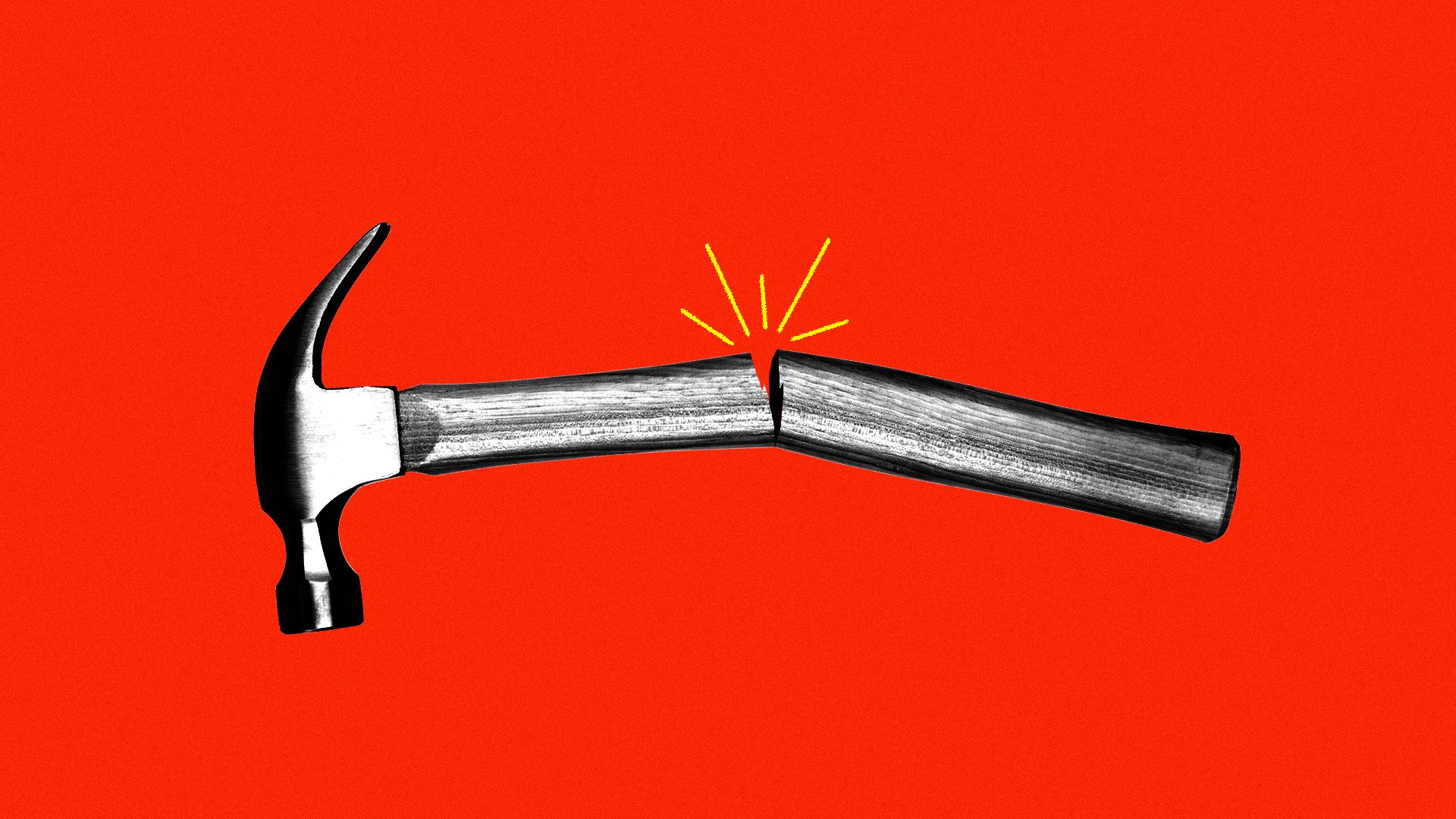The U.S. jobs market is starting to worry economists
Add Axios as your preferred source to
see more of our stories on Google.

Illustration: Lazaro Gamio/Axios
The U.S. jobs market, having long been the bedrock of the nation's economic expansion, is starting to worry economists ahead of next week's payroll data.
What's happening: After years of remarkably smooth sailing, 2019 has brought market volatility and some concern about whether the economy can keep adding jobs at a fast enough pace to sustain the expansion.
What we're hearing: Job gains don't necessarily have to turn negative to signal trouble, Mark Zandi, chief economist at Moody's Analytics, told Axios at a labor market conference hosted by payroll processor ADP this week.
All that's required is a strong slowdown in job growth. A 0.5% increase from a cyclical low on the unemployment rate has accurately predicted every recession in recent history and has never been a false positive, as Brookings economist Claudia Sahm noted recently.
- "Once unemployment starts to rise, even from a very low level, it undermines confidence, and the only difference between an expanding economy and a recessionary one is faith," Zandi said.
- "A recession is a collective loss of faith, and people lose faith when they start seeing unemployment rise."
Why now? A slowdown is not that unlikely, given the state of the labor market. The unemployment rate is at a 50-year low — it was 3.6% in May — and employers are reporting more trouble finding people to hire.
- In a poll of small business owners conducted in May, 25% said that finding qualified workers was their No. 1 problem, according to the National Federation of Independent Business.
- The trade war also is adding stress to the economy, but so far the effects have been concentrated in the trade and export sectors, which make up a small piece of overall employment.
What to watch: The all-important services side of the economy has been strong, but is beginning to feel the impact of the tight labor market, said Ahu Yildirmaz, co-head of ADP Research Institute. The number of job openings exceeded the number of unemployed Americans by the largest margin on record in April.
- "Let's remember you need approximately 100,000 net new jobs to keep the economy moving. We're still above that level, however there are so many other factors," she said.
- "If you look at the last couple months, the jobs numbers were really, really volatile."
The bottom line: Another blowout print like January's, which showed 312,000 jobs added, will calm a lot of jitters.
